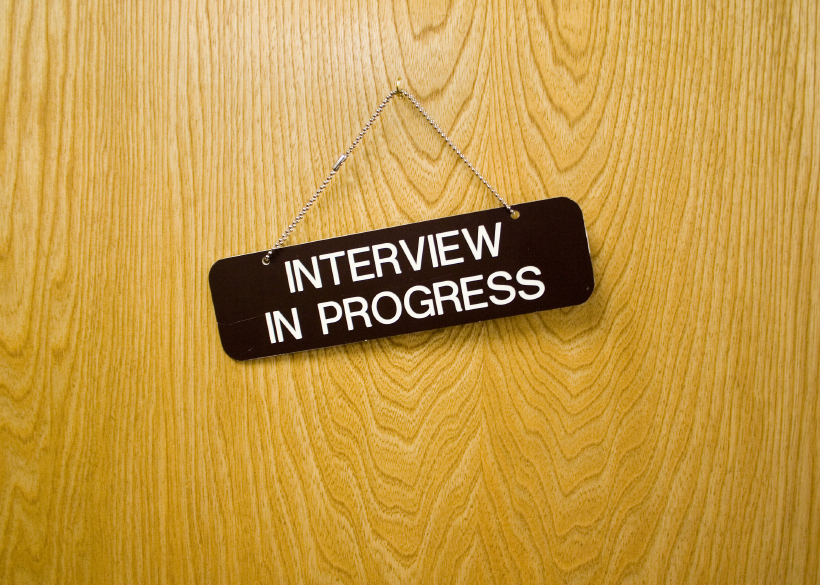It is my pleasure to introduce a guest blogger for this latest post. Dave Coons is a senior vice president here at Jacobson, providing leadership to our professional recruiting, emerging talent, RPO and temporary and temp-to-hire staffing practices. His insights into interview strategies are worth a read. Enjoy…
 In today’s fast-paced, ever-changing business world, innovation and flexibility are key to success. Most business professionals have heard the mantra “innovate or die,” yet are unsure how to turn this idea into a reality within their own organizations. For the insurance industry, this continued quest for innovation is especially important given constantly evolving marketplace conditions, climate concerns, rapidly changing technology risks, an ever-shifting web of compliance demands, and continued globalization.
In today’s fast-paced, ever-changing business world, innovation and flexibility are key to success. Most business professionals have heard the mantra “innovate or die,” yet are unsure how to turn this idea into a reality within their own organizations. For the insurance industry, this continued quest for innovation is especially important given constantly evolving marketplace conditions, climate concerns, rapidly changing technology risks, an ever-shifting web of compliance demands, and continued globalization.
At the risk of stating the obvious, the first, and arguably most important, step in creating a culture that fosters creative thought and adapts to change is to hire individuals who are innovative and adaptable. Yet, hiring for innovation can be challenging. Because innovation and flexibility often require out-of-the-box thinking and creativity, vetting these characteristics during the interview process is different than interviewing for traditional business skillsets. In fact, when searching for an innovative candidate, experience and skills are often not as important as that individual’s personality and creative thought process. While hiring managers may look for a specific number of years of relevant job experience when filling a traditional position, managers looking for creative individuals might instead focus on candidates who ask a lot of questions and seem able to make intuitive leaps during the interview process.
What does Innovation Mean to You?
Before you begin your search, make sure you understand what innovation means to your culture and organization. What does being innovative mean to the role in question? How does flexibility apply to the position? It is important that you have an understanding of what you want these traits to translate into within the job function and within the company as a whole.
Are you looking for an individual who generates ideas and is a constant thought leader or are you looking for an employee that can take a creative idea from the drawing board through implementation? Depending on your response to these questions, you may want to rethink the skills and experience you are looking for in a candidate.
How do I Find Innovative Talent?
While you obviously want to make sure that a candidate’s skills are compatible with the job opening and that their values are a good fit with those of the organization, these are only a piece of the total picture. The search for innovative talent requires a focus on personal characteristics and reactions.
In order to ascertain a candidate’s propensity for innovation, focus on asking open-ended questions that go beyond the standard interview stock. Ask the individual to share an experience or past event when they have had to adapt to a situation or when they have shown their creativity in dealing with a particular incident. Introduce behavioral interview guides to gauge their response. For example, provide them with specific scenarios and ask them to describe how they would react. Is their selected method of response in line with what you are looking to happen in that situation?
Use follow-up questions to really understand a candidate’s personality and to get the information you are seeking. Simply asking individuals to “tell me more” can be a great way to get them to share how they may handle various aspects of the job. Make sure you don’t lead them to the answer; let them be open and honest with you when they respond.
Have your candidate interview with multiple individuals from your team in order to get a variety of perspectives and impressions. Perhaps someone from your team sees something in the individual that everyone else overlooked. A team member who is currently working in a position similar to the one you are filling is more likely to recognize a key skill or trait than a manager who may not be as involved in the day-to-day aspects of that particular role.
Managers may also want to utilize case study or writing exercises to ascertain a candidate’s innovative tendencies. Ask the individual to submit a brief write-up on something particularly innovative that they have completed while on the job or in their personal lives. Give them an organizational case study and have them put together an innovative solution. These exercises are particularly helpful when interviewing individuals who may not have an extensive work background or applicable job experience, but do have all the skills and competencies you are looking for.
If your company is ready to embrace innovative thinking and new ideas, now is the time to add talented, creative individuals to your team. No matter what tactics you use in your quest for innovative talent, finding quality employees who are inventive and flexible is key to staying competitive in today’s market.
What is your company currently doing to ensure you hire individuals who thrive on innovation?